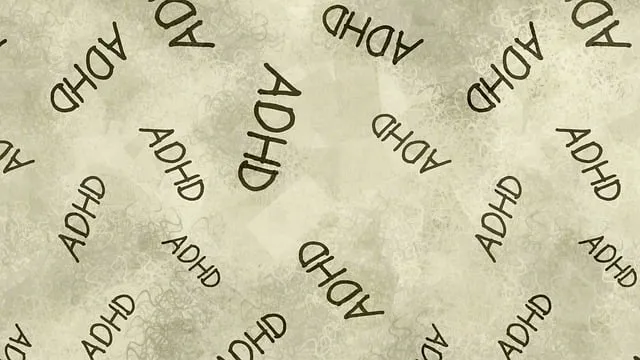The growing demand for mental wellness coaching in Arvada and Kaiser highlights a shift towards preventive mental health measures. Innovative programs, such as those offered by Arvada Kaiser, combine evidence-based practices like Compassion Cultivation, Stress Reduction, and Conflict Resolution to promote overall well-being. Their holistic approach, including tools like the Mental Wellness Podcast Series, aims to reach diverse audiences and build resilience. By focusing on symptom reduction and self-care, these programs foster healthier communities, with continuous support through podcast series and regular practice sessions. Arvada Kaiser's success lies in assessing employee needs, refining curricula through feedback, and tracking improvements in mental well-being and coping mechanisms.
In today’s fast-paced world, the demand for accessible mental wellness support is on the rise. This article explores the crucial role of mental wellness coaching programs in addressing growing psychological needs. We examine the contributions of leaders like Arvada Kaiser in shaping innovative mental health initiatives. By delving into key components and a step-by-step program design approach, we uncover best practices for effectiveness. Additionally, we discuss measuring success and evaluating impact, highlighting the transformative potential of tailored Arvada Kaiser mental health programs.
- Understanding the Growing Need for Mental Wellness Coaching Programs
- The Role of Arvada Kaiser in Mental Health Program Development
- Key Components of Effective Mental Wellness Coaching Programs
- Designing Customized Programs: A Step-by-Step Approach
- Measuring Success and Evaluating Impact: Best Practices
Understanding the Growing Need for Mental Wellness Coaching Programs

In today’s fast-paced world, the demand for mental wellness coaching programs has been on the rise, especially in communities like Arvada and Kaiser areas where mental health awareness is gaining prominence. The growing recognition of mental health as a critical aspect of overall well-being has led to a significant shift in focus from mere treatment to proactive prevention and promotion of mental wellness. This change is driving the development of innovative programs that cater to diverse populations, addressing not just clinical issues but also fostering resilience and emotional intelligence.
The need for these programs is further highlighted by the increasing prevalence of stress, anxiety, and other mental health challenges among individuals of all ages. Traditional mental health education programs often fall short in reaching a broader audience, especially those who might be hesitant to seek professional help. To bridge this gap, Mental Wellness Podcast Series Production and Social Skills Training have emerged as powerful tools, offering accessible and engaging ways to educate and support community members. By integrating these approaches with the design of Mental Health Education Programs, developers can create comprehensive solutions that cater to a wide range of needs, ultimately contributing to healthier and more resilient communities.
The Role of Arvada Kaiser in Mental Health Program Development

Arvada Kaiser stands as a beacon in the realm of mental health program development, pioneering innovative strategies that have profoundly impacted individuals seeking holistic wellness. Their approach emphasizes evidence-based practices, integrating Compassion Cultivation Practices to foster empathetic connections and promote emotional resilience. By incorporating Stress Reduction Methods and Conflict Resolution Techniques, Arvada Kaiser’s programs equip participants with practical tools to navigate life’s challenges effectively.
Through meticulous research and a deep understanding of human psychology, the organization has designed comprehensive curricula that cater to diverse needs. These programs not only address symptoms but also aim to enhance overall well-being, teaching individuals how to cultivate inner peace, improve communication, and build healthier relationships. Arvada Kaiser’s commitment to excellence continues to shape the landscape of mental health support, offering a transformative journey towards mental wellness for all who seek it.
Key Components of Effective Mental Wellness Coaching Programs

Effective mental wellness coaching programs are multifaceted, designed to cater to diverse individual needs and promote holistic healing. At the core of these programs, found in renowned Arvada Kaiser mental health initiatives, lies a blend of evidence-based practices and personalized guidance. The initial step involves establishing a safe, non-judgmental space where clients feel empowered to explore their thoughts and emotions openly. This environment facilitates trust and encourages active participation, crucial elements for the success of any coaching journey.
These programs integrate various components such as mindfulness meditation techniques, compassion cultivation practices, and cognitive behavioral strategies. The inclusion of regular practice sessions in these areas helps clients develop resilience, enhance self-awareness, and cultivate healthier coping mechanisms. Additionally, a well-structured Mental Wellness Podcast Series Production can offer ongoing support, providing valuable insights and inspiration between coaching sessions. By combining these elements, Arvada Kaiser mental health programs strive to create lasting positive change, empowering individuals to lead happier, more fulfilling lives.
Designing Customized Programs: A Step-by-Step Approach

When developing a Mental Wellness Coaching program tailored to an organization like Arvada Kaiser, the process begins with understanding the unique needs and culture of the workplace. This involves conducting thorough assessments to identify key areas for improvement. For instance, assessing current employee satisfaction ratings and stress levels can reveal hidden issues that impact mental health. These insights then guide the design of customized interventions, ensuring relevance and engagement.
A step-by-step approach might include creating a curriculum that integrates evidence-based practices such as Stress Management Workshops, Self-Awareness Exercises, and Empathy Building Strategies. The program could be modular, allowing for flexibility in content delivery to cater to different teams or individuals. Regular feedback sessions during and after implementation are crucial to refining the coaching strategies and ensuring their effectiveness in promoting a healthy work environment at Arvada Kaiser.
Measuring Success and Evaluating Impact: Best Practices

Measuring success and evaluating impact are vital components of effective Arvada Kaiser mental health programs. To assess progress, coaches should implement a comprehensive risk assessment for mental health professionals, ensuring client safety while fostering a supportive environment. Regular self-care routine development for better mental health among participants is another key indicator; encouraging open dialogue about mental illness stigma reduction efforts can significantly enhance program effectiveness.
By utilizing these best practices, Arvada Kaiser mental wellness coaching programs can accurately gauge their impact on individual lives. This includes tracking improvements in clients’ emotional well-being, coping mechanisms, and overall resilience. Such evaluations not only help in refining program content but also contribute to the broader goal of promoting mental health awareness and reducing stigma within the community.
Mental wellness coaching programs, driven by organizations like Arvada Kaiser, are transforming lives by addressing a growing need for accessible mental health support. By integrating key components such as customized planning, evidence-based strategies, and measurable outcomes, these programs offer effective solutions. Following a step-by-step approach to design and a focus on evaluating impact, mental wellness coaching emerges as a powerful tool in fostering resilience and enhancing overall well-being. Arvada Kaiser’s leadership in this space underscores the potential for these programs to revolutionize mental health support.






